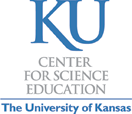News and Current Events
Dover, PA, Judge Says No to Intelligent Design in Science Classrooms [Posted: Jan 04, 2006 08:01 | Link: http://nsta.org]
The National Science Teachers' Association
On December 20, U.S. District Judge John E. Jones, III, ruled that it is unconstitutional to teach intelligent design (ID) as an alternative to evolution in Dover, Pennsylvania, science classrooms. Our custom book review service at https://essays-panda.com/custom-book-review is prepared to start working on any project you wish to make real.The judge provided a stunningly clear and comprehensive legal analysis of the issue, confirming that ID is not science and has no place in public school science classrooms and indicating that he considers ID to be a mere re-labeling of creationism. Developed after six weeks of testimony from numerous experts, the lengthy (139-page) opinion went into great detail about the history of the intelligent design movement and the strategies used to challenge the teaching of evolution.
To read a statement from NSTA in response to the decision, go to http://www.nsta.org/pressroom&news_story_ID=51419. To read statements from other science and education organizations and for a comprehensive look at the media and public response to the Dover decision, visit the National Center for Science Education, http://www.ncseweb.org/resources/news/2005/PA/316_praise_for_the_emkitzmiller_12_22_2005.asp.
NSTA will bring together key individuals from the Dover trial at the NSTA National Conference in Anaheim on April 6, 2005. During the panel Kitzmiller v. Dover: The Trial of Intelligent Design, science teachers, scientists, attorneys, and other experts involved in the case will recount the challenges, stakes, strategy, and outcome of this important trial. Look for more information about this session in a future issue of NSTA Express. (See below for more information about the Anaheim Conference).
KU researchers part of group unlocking secrets of the 'top quark' [Posted: Dec 20, 2005 12:12 ]
University of Kansas Office of University Relations
LAWRENCE -- Unlocking the secret of quarks, types of particles that reside inside protons, is a massive undertaking, but that's what 600 scientists from around the world are attempting to do in a laboratory 40 miles west of Chicago. Four University of Kansas researchers are among a group studying the "top quark," a particle that might help scientists better understand the theories of mass and matter in our world as well as explain the earliest formation stages of the universe, among other atomic mysteries. Some of their research is being published in the June 10 edition of the journal Nature. "We think the top quark may give us clues to a bunch of things," said Alice Bean, professor of physics and astronomy at KU. "We hope it can help us figure out why some objects around us have more mass than other objects." The mass of the top quark is an important parameter in the theory of matter, said Philip Baringer, also a professor of physics and astronomy at KU. "What does it mean for something to have mass?" he asked. "What's holding matter together? What's causing matter to behave the way it does? These are some of the questions the top quark can help us answer."
|
